 Dome of the Rock at the Al-Aqsa mosque compound in the Old City on January 17, 2017 in Jerusalem, Israel. (Photo by Chris McGrath/Getty Images)
Dome of the Rock at the Al-Aqsa mosque compound in the Old City on January 17, 2017 in Jerusalem, Israel. (Photo by Chris McGrath/Getty Images) The Israel Policy Forum (IPF) held a virtual event on December 16 with various speakers emphasizing the importance of achieving a two-state solution to the Israel-Palestinian conflict.
Speaker of the House Nancy Pelosi (D-Calif.) spoke at the event through a recorded video message, calling Israel “a friend, a partner in democracy, and an ally in the fight for peace and security in the region and in the world.” She also declared that bipartisan support for Israel in Congress remains “ironclad,” pointing to a resolution that the House of Representatives passed in December 2019 that denounces steps from both sides that would weaken the prospects of a two-state solution, such as the Israeli government unilaterally annexing the West Bank and Palestinians making the case for statehood without negotiations with Israel.
“We dedicate ourselves to this noble goal for peace and prosperity for all who call Israel home,” Pelosi said.
Rep. Ted Deutch (D-Fla.) also spoke, arguing that there has been “an erosion of confidence on all sides” of the Israel-Palestinian about achieving a two-state solution and expressing hope that the incoming administration would restart dialogue with the Palestinians and restore aid to the Palestinians.
“We can’t be good partners for Israel if we’re not talking to the Palestinians,” Deutch said, adding that “assistance for the Palestinians has always been a bipartisan issue.” He accused the Trump administration of withholding aiding as a means of bullying “the Palestinians into accepting the Trump peace plan.”
Deutch said he welcomed the Abraham Accords and that Biden wants to build on those agreements; however, Deutch argued that Congress needs to know about any side deals that are agreed to as part of the Abraham Accords. The arms deal between the Trump administration and the United Arab Emirates, for instance, was not disclosed to Congress, Deutch said.
Deutch said he welcomed the Abraham Accords and that Biden wants to build on those agreements; however, Deutch argued that Congress needs to know about any side deals that are agreed to as part of the Abraham Accords.
“When President Trump sees a deal to be made, it’s about the deal,” Deutch said, adding that foreign policy is more than just deal making, it’s about advancing Israel’s national security interests.
On the issue of Iran, Deutch said that the Biden administration should re-enter the Iran nuclear deal and look for ways to improve the deal “to make it stronger and longer.” He also suggested that there should be international efforts to crack down on the Iranian government’s “illicit smuggling of missile parts.”
The event also featured a brief virtual panel featuring Shalom Hartman Institute senior fellow Yossi Klein Halevi, Union for Reform Judaism President Rabbi Rick Jacobs and Brookings Institute Center for Middle East Policy senior fellow Tamara Cofman Wittes. Halevi said that he does welcome President-elect Joe Biden’s approach to the Palestinians, stating: “I think we need a more activist approach and an approach that reassures the Palestinians that they do have a credible place in this Middle East that’s emerging.”
However, he did express concern about Biden re-entering the Iran nuclear deal since “many Israelis, like myself, view [the deal] as the single greatest strategic threat that this country [Israel] has faced in decades.”
Jacobs discussed how members of the Jewish community, stating that some think that Jews mainly vote on domestic issues, but he thinks this is incorrect.
“Our values have lined up… more over the years with the Democrat Party,” Jacobs said, adding that the majority of Jews also support Israel but have various disagreements with the Israeli government’s policies. He asserted that what it means to be pro-Israel has been weaponized over the past four years into the idea that one can’t ever criticize the Israeli government’s policies. “A lot of American Jews push back on that,” he said.
On the matter of anti-Semitism, Jacobs said that American Jews realize that’s it’s coming from both sides of the political spectrum and that it’s repugnant in all of its forms.
Jacobs did give credit to the Trump administration’s policies toward Israel, stating that while he doesn’t agree with all of the administration’s policies, he does appreciate that the administration recognized Jerusalem as the capital of Israel, moved the United States embassy from Tel Aviv to Jerusalem and signed the Abraham Accords.
The event also honored Abner Goldstein from Los Angeles, Richard Ravitch from New York and Brianna Goodlin from Boston.
“Richard and Abner, who are members of our Advisory Council and longtime supporters of a viable two-state solution to the Israeli-Palestinian conflict, have provided inspiring leadership in support of a secure, Jewish, and democratic Israel,” Susie Gelman, the board chair of IPF, said during the event. “And Brianna has been a driving force behind the phenomenal growth of our young professionals’ network, IPF Atid.”
The full event can be seen below:








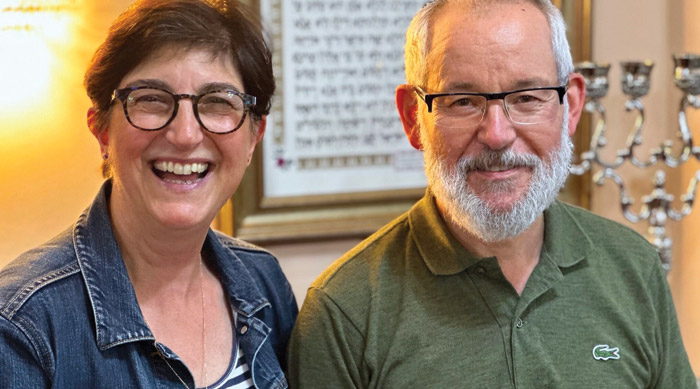
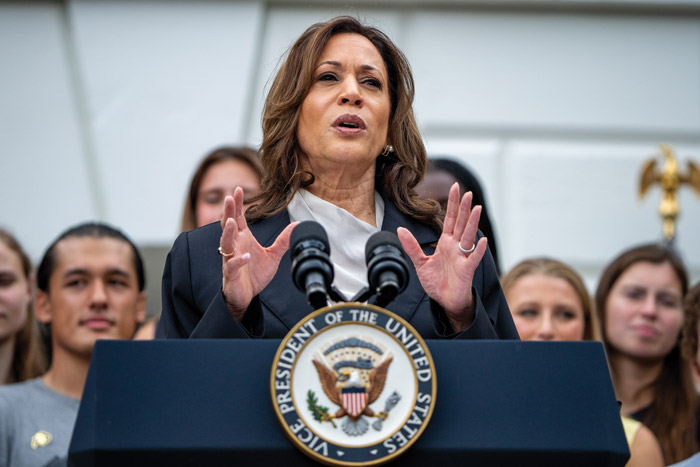
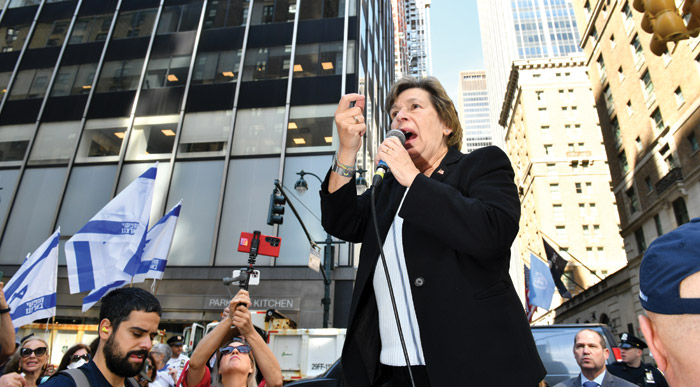
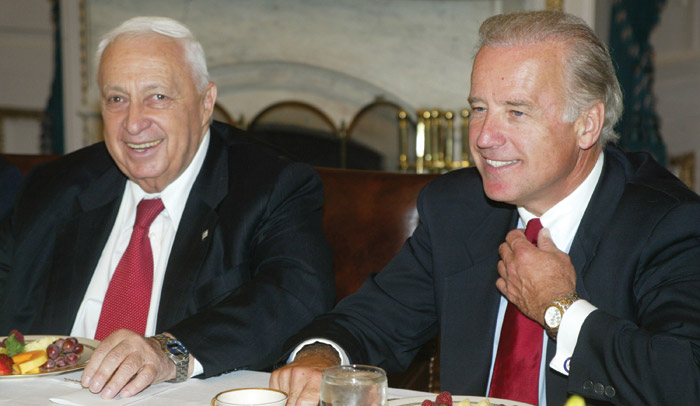
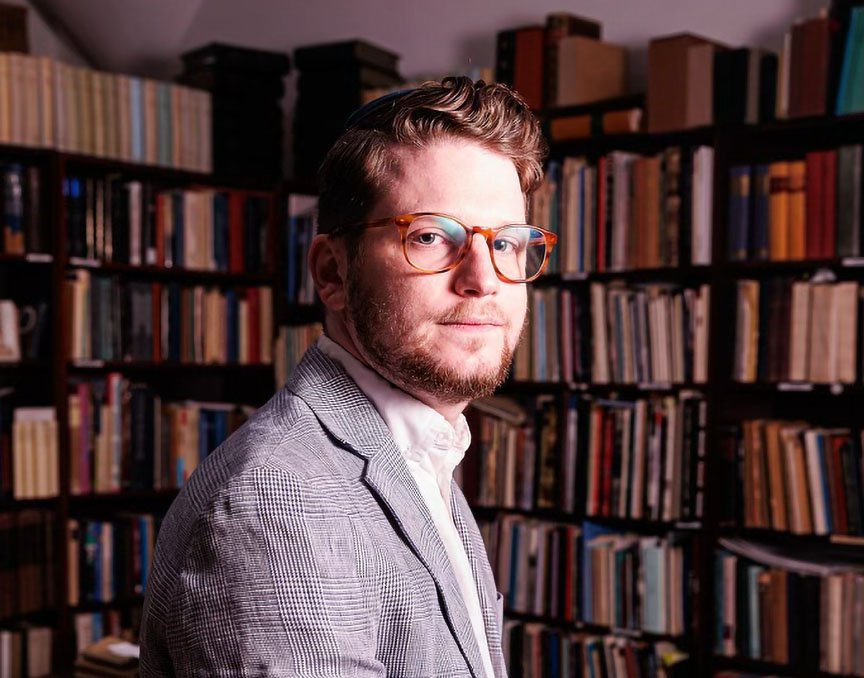









 More news and opinions than at a Shabbat dinner, right in your inbox.
More news and opinions than at a Shabbat dinner, right in your inbox.